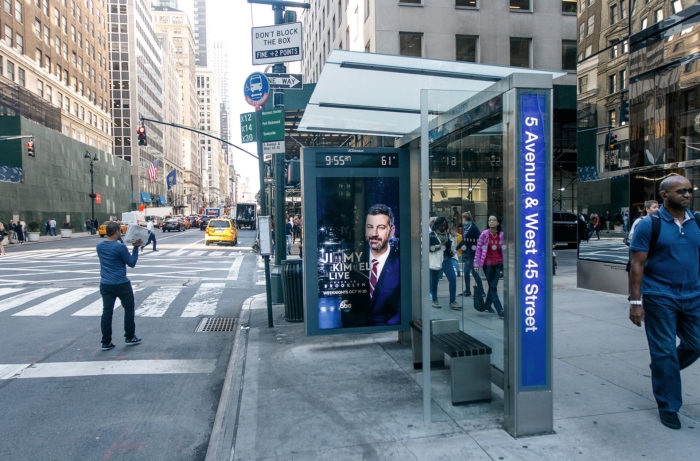NEW YORK: New York City has banned alcohol advertising on city property, citing health risks posed by excessive drinking.
The ban, which took effect April 30, applies to bus shelters, newsstands, Wi-Fi kiosks and recycling kiosks. Venues that are currently allowed to sell alcohol, such as restaurants, stadiums and concerts halls, are exempt.
“This order banning alcohol ads from City property reaffirms our commitment to health equity and our stand to protect the well-being of all New Yorkers,” New York City Mayor Bill de Blasio, a Democrat, said in an emailed statement.
Existing ads will be allowed to remain until their contracts end. Other US cities that have moved to ban alcohol advertising on city property include Philadelphia, San Francisco and Los Angeles.
City officials cited studies showing that exposure to alcohol ads can lead people to drink more.
“In New York City, we see far too many deaths related to alcohol,” said Health Commissioner Dr. Oxiris Barbot. “We know exposure to alcohol advertising can lead to drinking more alcohol, more often – behavior that can be harmful and even fatal. Today’s ban of alcohol ads on city property will help protect communities from the burden of harmful alcohol advertising.”
The deputy mayor for health and human services, Dr. Herminia Palacio, said advertising can influence how much people drink and how young they are when they start.
“This executive order closes a loophole and reaffirms this administration’s commitment to advancing policies that promote health equity and build healthier communities,” Palacio said.
The Distilled Spirits Council called the ban “misguided and unsupported by the scientific research”.
The group’s vice president, Jay Hibbard, added: “The research is clear – parents and other adults are the most influential factors in a youth’s decision whether or not to drink alcohol, not advertising.”
The city health department says there were more than 110,000 alcohol-related visits to New York City emergency departments in 2016. Nearly 2,000 New Yorkers died that year from alcohol-related causes, including liver disease and driving fatalities.
City officials say they do not expect to lose any ad revenue, since only about 3 per cent of the ad space on city property is dedicated to alcohol ads and those slots can be filled with other types of ads.
A Metropolitan Transportation Authority ban on advertising alcohol beverages on all New York City buses, subway cars and in stations took effect in January 2018. AP







